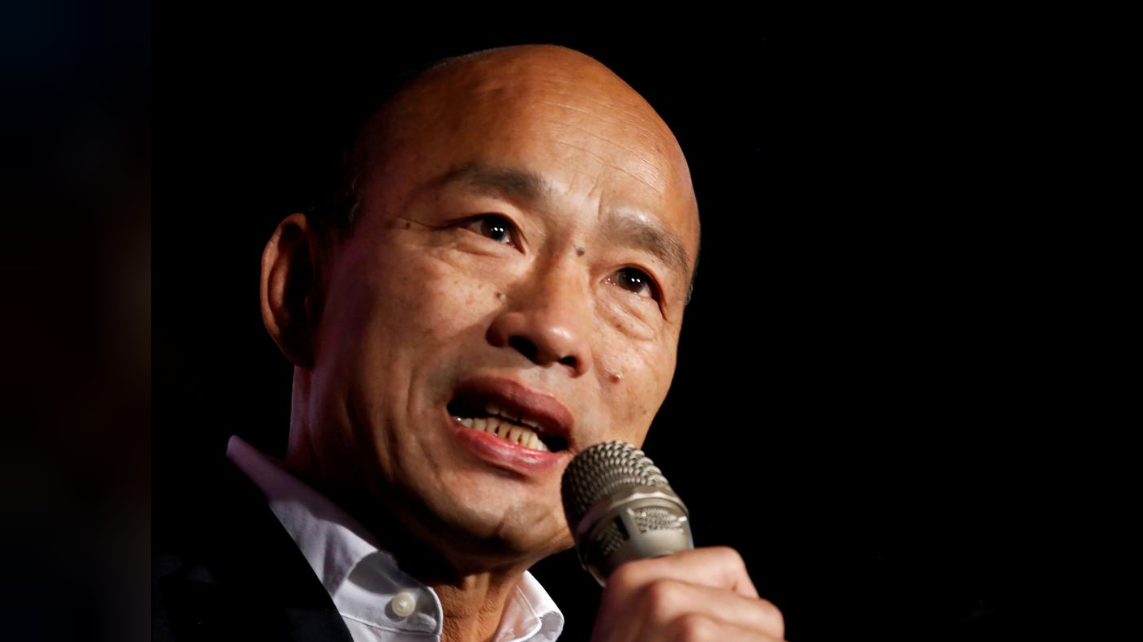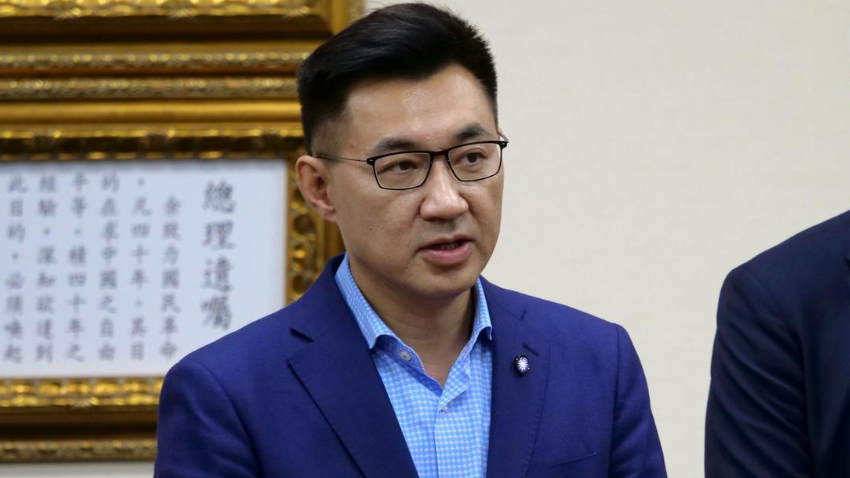Since having published the four-pillar policy guidelines on cross-Straits relations last Friday, Taiwan's opposition party, Kuomintang (KMT), hasn't had a peaceful time. Viewing the 1992 Consensus as "historical description of past cross-Strait interaction," the latest guidelines were criticized and questioned both inside and outside the party for weakening the political foundation of peaceful development of cross-Straits relations.
When releasing the new guidelines on Friday, KMT Chairman Johnny Chiang described the attempt as a move to "narrow the generation gap" and gain popularity from the public, the young voters in particular, by vowing to shape a new cross-Straits relationship given the recent results of the party in the last elections.
Chiang viewed the move as a possible solution to the current stalemate in cross-Straits relations and KMT's gloomy supporting rate on the island. The intention seems ambitious, but will only lead to a loss of trust and support from people on both sides, analysts pointed out.
Before the new guidelines came out, the KMT suffered consecutive failures, first in Taiwan's 2020 leadership election in January and then on the recall vote of Kaohsiung's mayor, also KMT's leadership candidate Han Kuo-yu on June 6. Given the situation, the move will perhaps lead to a dead end.
Read more: After recall motion, what's next for KMT and cross-Strait relations?

Kuomintang party's candidate Han Kuo-yu admits defeat in the Taiwan leadership election in Kaohsiung, Taiwan, January 11, 2020. /Reuters
Kuomintang party's candidate Han Kuo-yu admits defeat in the Taiwan leadership election in Kaohsiung, Taiwan, January 11, 2020. /Reuters
What lies behind?
The guidelines consist of four pillars including "safeguarding the sovereignty of the Republic of China, protecting democracy and human rights, prioritizing Taiwan's security, and building a win-win situation and prosperity on both sides of the Straits."
Although the reform committee recognized the 1992 Consensus should be viewed as "a historical description of past cross-Strait interaction," according to Niu Tse-hsun, commentator on Taiwan affairs, the changes are in fact "weakening" the concept by creating a vague attitude in order to gain resilience on this matter. But the attempt will only make the KMT lose its feature as well as its popularity among pro-China voters, Niu said.
The 1992 Consensus, with the recognition of "one China" as its core, has long been the political foundation of peaceful development of cross-Straits relations.
Moreover, it is also the biggest difference between the KMT and the Democratic Progressive Party (DPP) as the latter clearly opposes to the consensus and has been seeking for "independence" since its leader Tsai Ing-wen took office in 2016.

Johnny Chiang, Chairman of Kuomintang Party (KMT), speaks during a news conference in Taipei, Taiwan, March 7, 2020. /Reuters
Johnny Chiang, Chairman of Kuomintang Party (KMT), speaks during a news conference in Taipei, Taiwan, March 7, 2020. /Reuters
Pang Jianguo, Professor at Chinese Culture University in Taiwan, believed that the change is a "compromise" that aims to cater for the so-called "mainstream" public opinion under the leadership of the DPP.
According to Pang, the re-examination of the 1992 Consensus reflects "the lack of confidence" of the KMT as the move intends to avoid direct confrontation and narrow down the differences of political stance with the DPP.
The KMT certainly does not dare to discard the 1992 Consensus, but the absence of the concept in its latest policy guidelines indicates the swing position of the KMT, which in turn, is dragging the party into a political dilemma and making it lose its capability as well as its advantages in handling the cross-Strait relations, said Pang.
A 'small green' party?
The guidelines also faced criticism within the KMT soon after it was released. Darby Liu, a member of the KMT's policy-making Central Standing Committee denounced the proposals, saying it was "solely parroting the rhetoric of the DPP."
"The proposals made by the panel were mostly the same as those broached by the DPP. No wonder that the KMT has been described as a small green (party in the green camp dominated by the DPP)," he told Taiwan media on Friday.
He pointed out that instead of weakening the consensus, the KMT should highlight the importance of the 1992 Consensus, and what benefits it can bring to the people of Taiwan while explaining to voters why the party is against "Taiwan independence."
Liu's opinion is echoed by Zhong Houtao, researcher of the Taiwan Studies Institute (CASS), who claimed that the KMT is moving in the wrong direction that will only end up with a further major defeat.
In fact, holding the 1992 Consensus is KMT's biggest advantage as it enables the party to smooth cross-Strait relations and maintain exchanges and trade with the Chinese mainland, a unique advantage which the pro-independence DPP can never realize.
Read more:
Being at a crossroads, KMT should stick to the 1992 Consensus

Photo taken on June 20, 2019 shows a night view of Taipei, southeast China's Taiwan. /Xinhua
Photo taken on June 20, 2019 shows a night view of Taipei, southeast China's Taiwan. /Xinhua
Data from the Chinese Ministry of Commerce showed that in 2018, the Chinese mainland is Taiwan's biggest trade partner and the largest source of surplus, which, brought 128.95 billion U.S. dollars revenue together with over 197 million U.S. dollars of direct investment from the Chinese mainland to the island.
With the deadline of Economic Cooperation Framework Agreement (ECFA) approaching, a healthy and stable cross-Strait relationship would be particularly important for the future of Taiwan's economy and trade.
Rather than parroting the DPP's rhetoric, if the KMT put emphasis on its influence over the negotiation with the Chinese mainland and assure voters the importance of the peaceful development of cross-Strait relations and its link to the trade across the straits, they are more likely to gain support from the public.
Read more: KMT urged to properly resolve political disputes across the Taiwan Straits
Late Friday, Taiwan Affairs Office of the State Council issued a statement on the proposal, urging the KMT to "cherish and safeguard the existing political foundation between the two parties," said its spokesperson Zhu Fenglian.
If the KMT discards the correct concept and deviates from basic principles to which it has long adhered, it will damage the foundation of mutual trust and create obstacles in the exchanges and cooperation between the two parties and across the Straits, the spokesperson said, reiterating that abandoning the 1992 Consensus is a dead end.